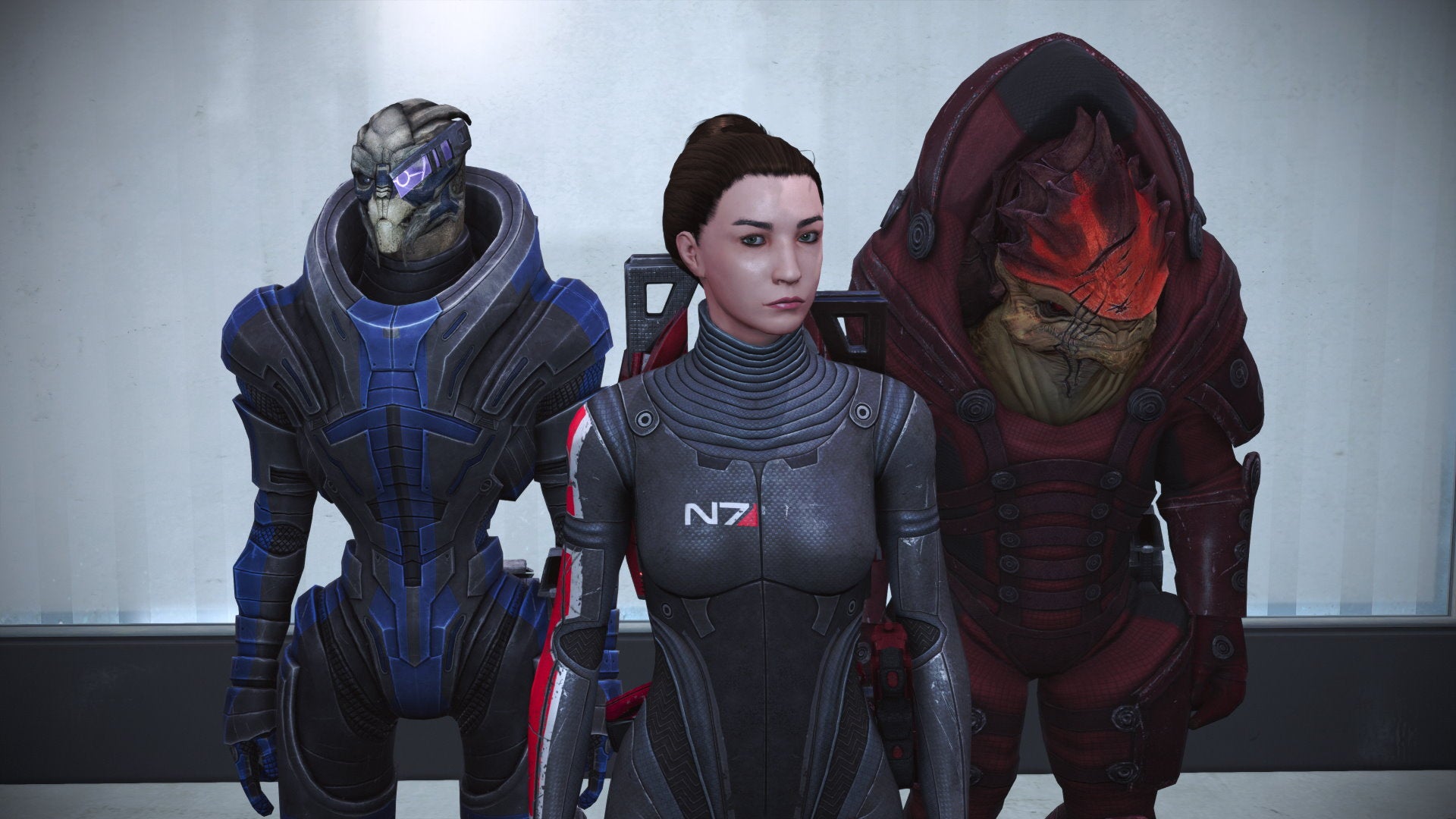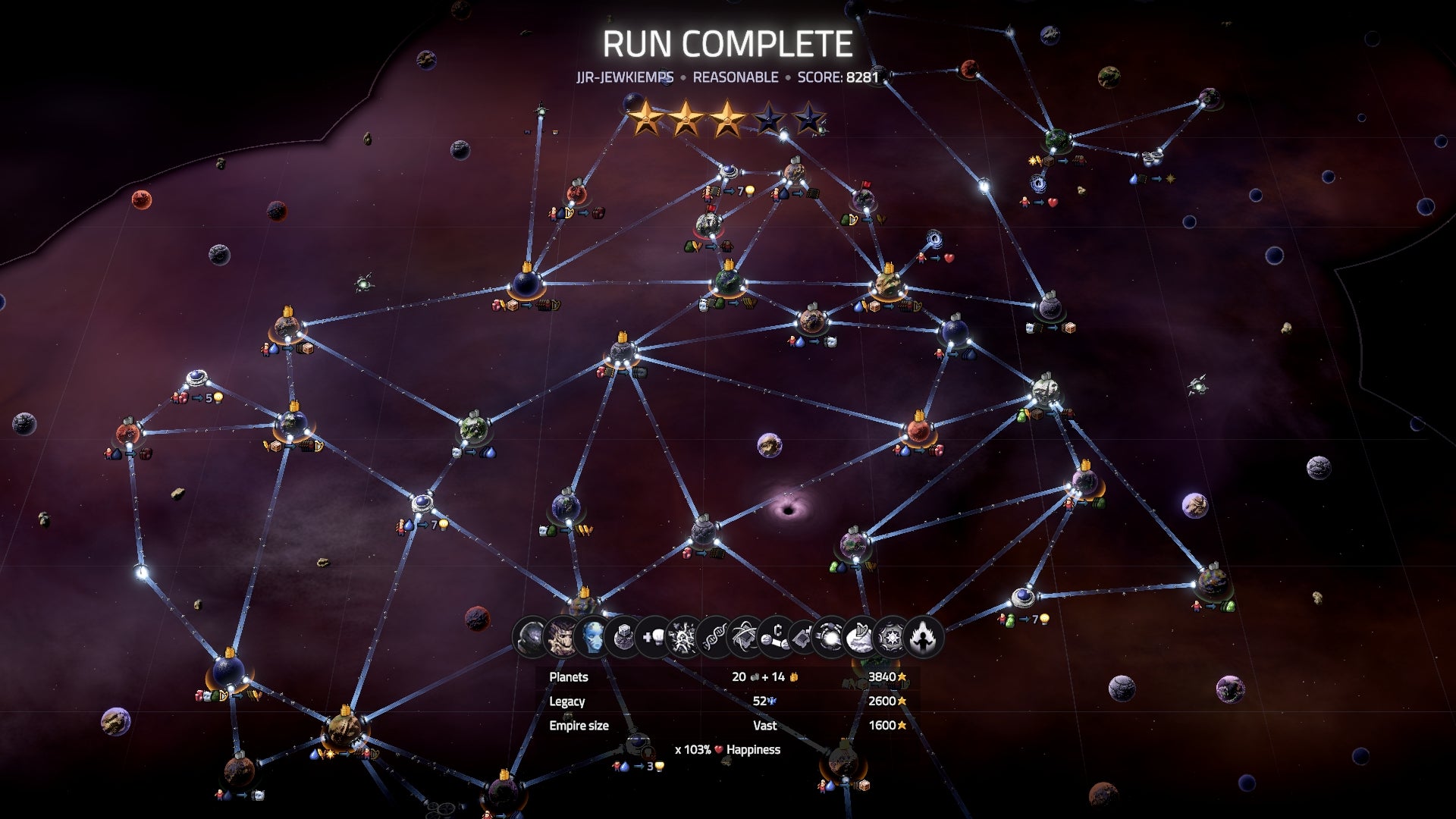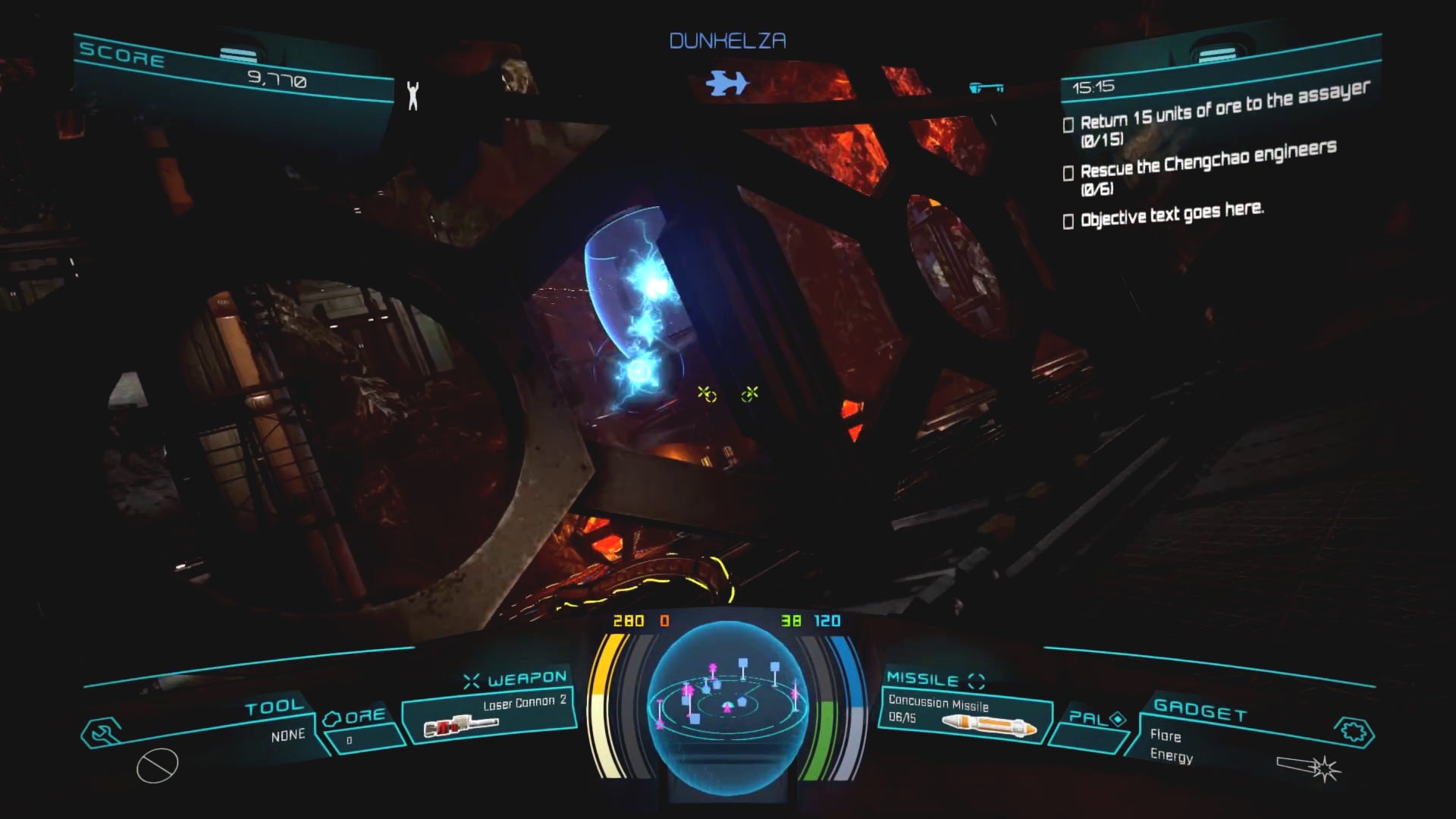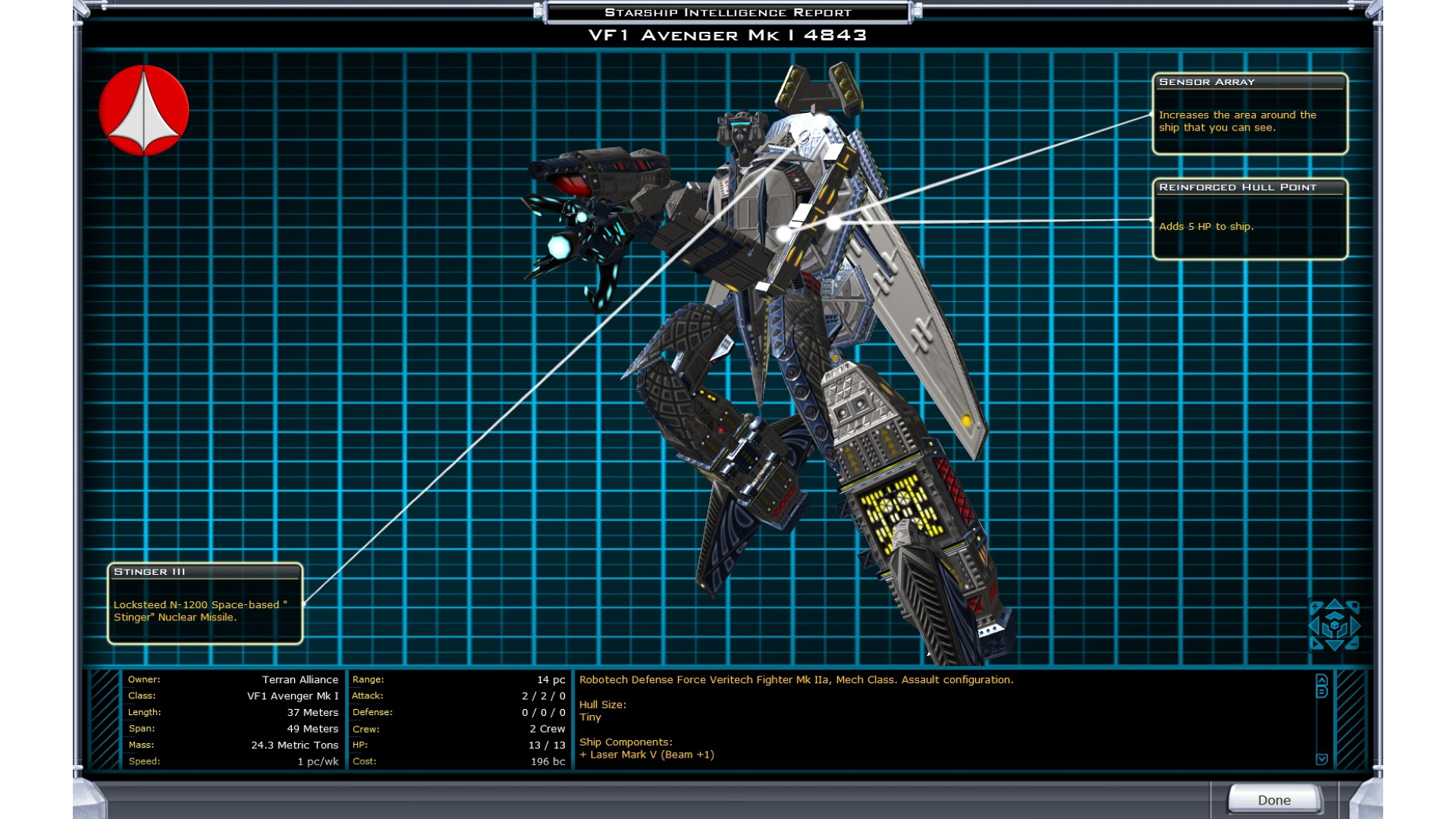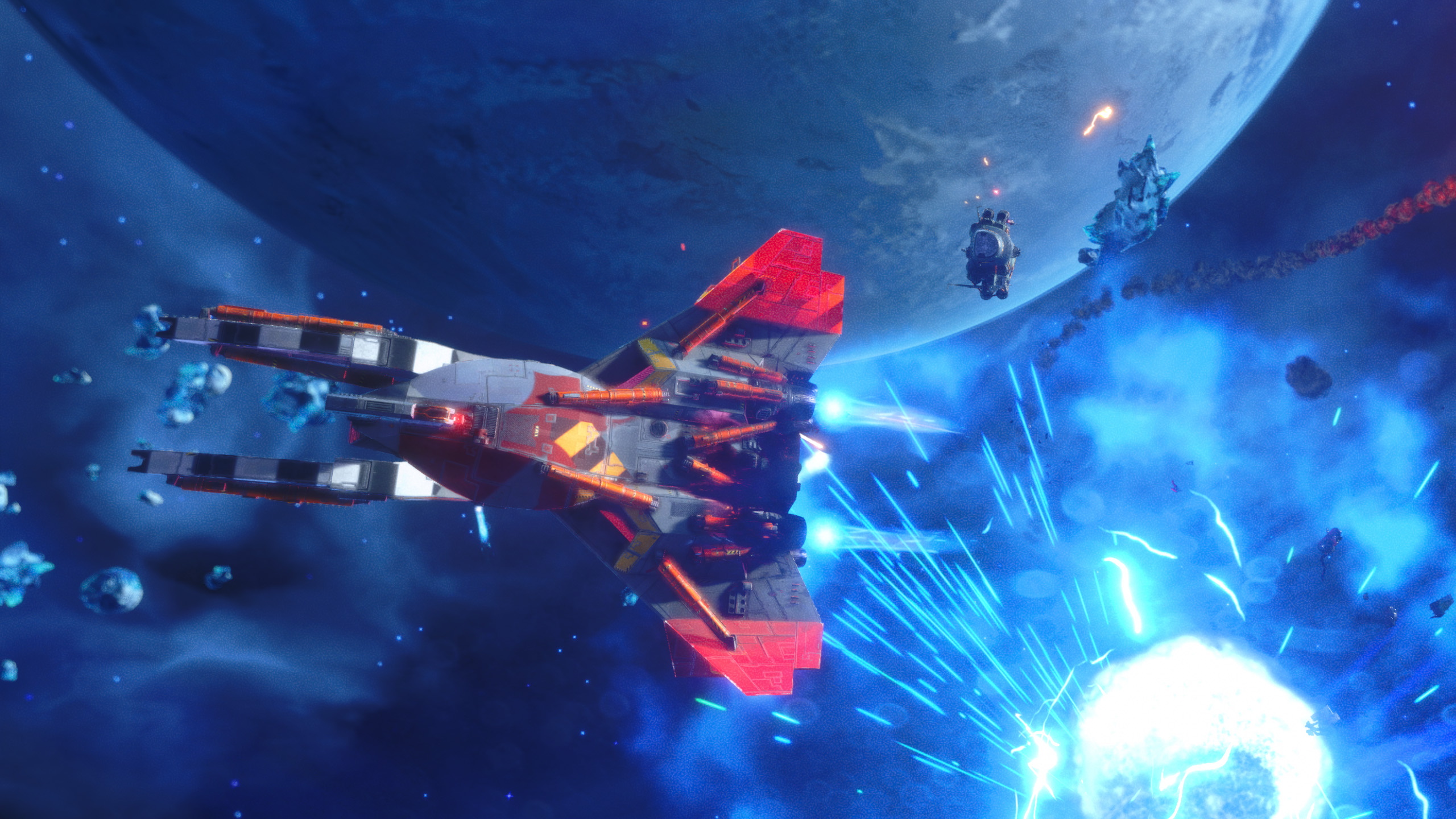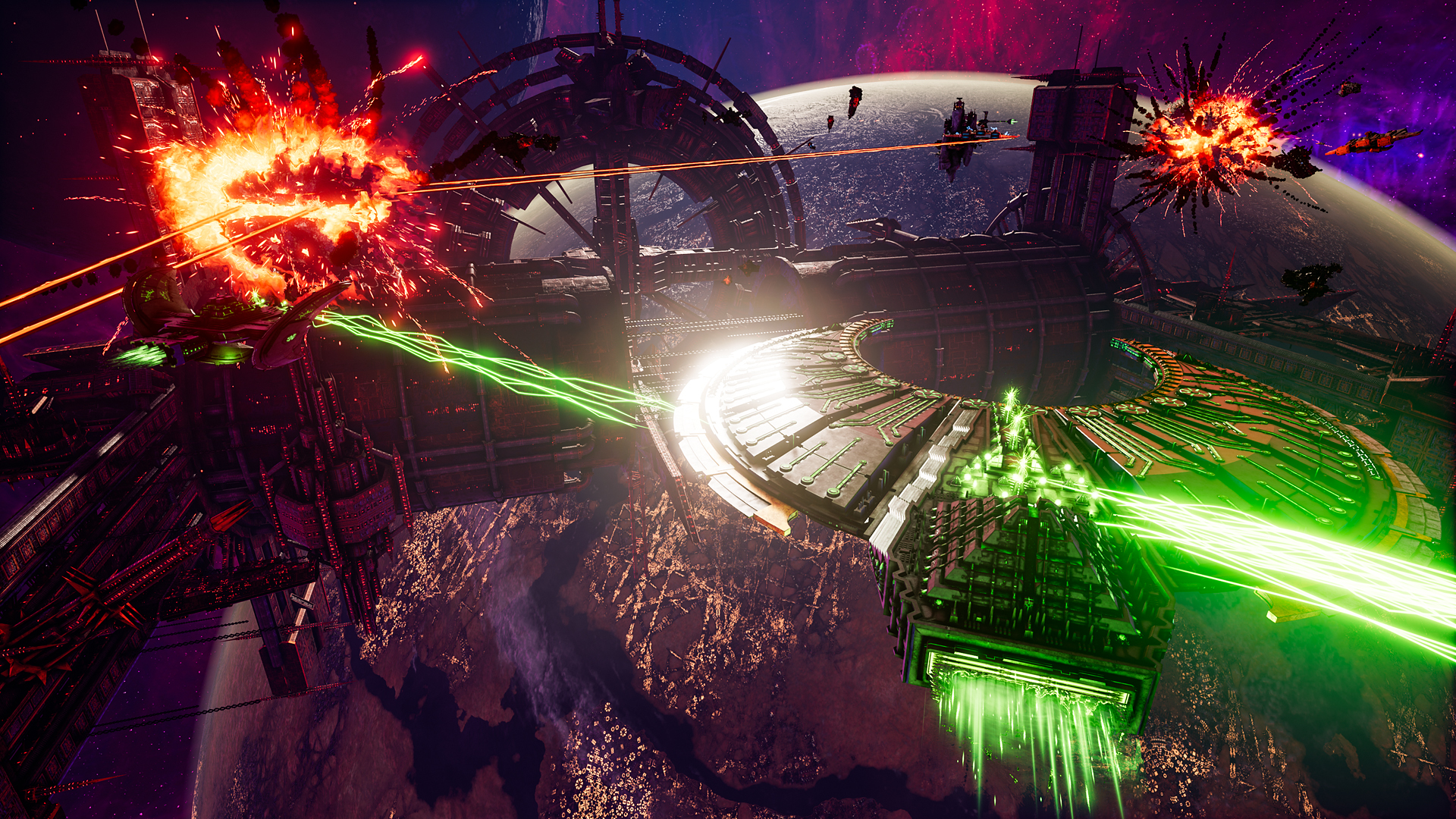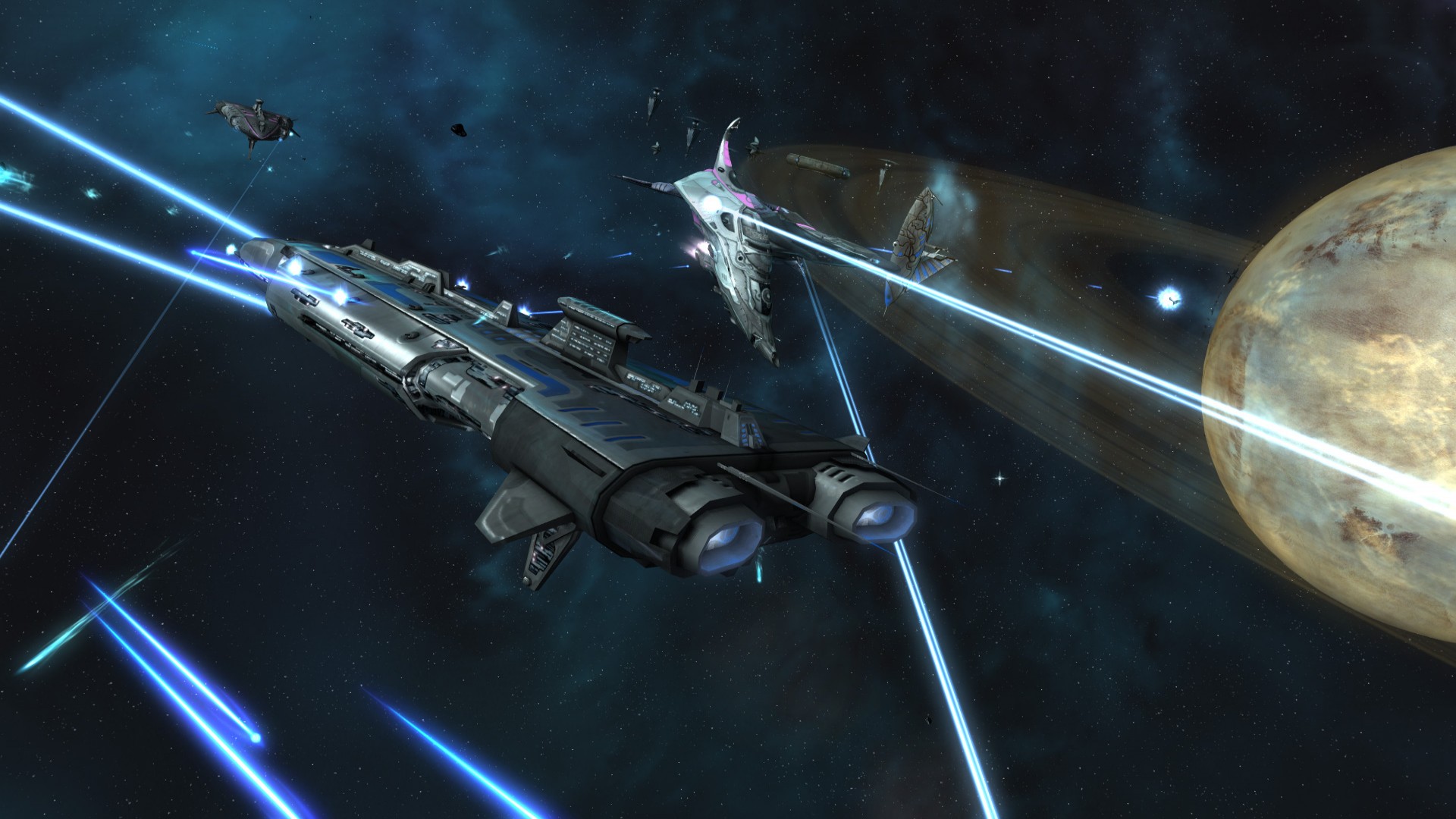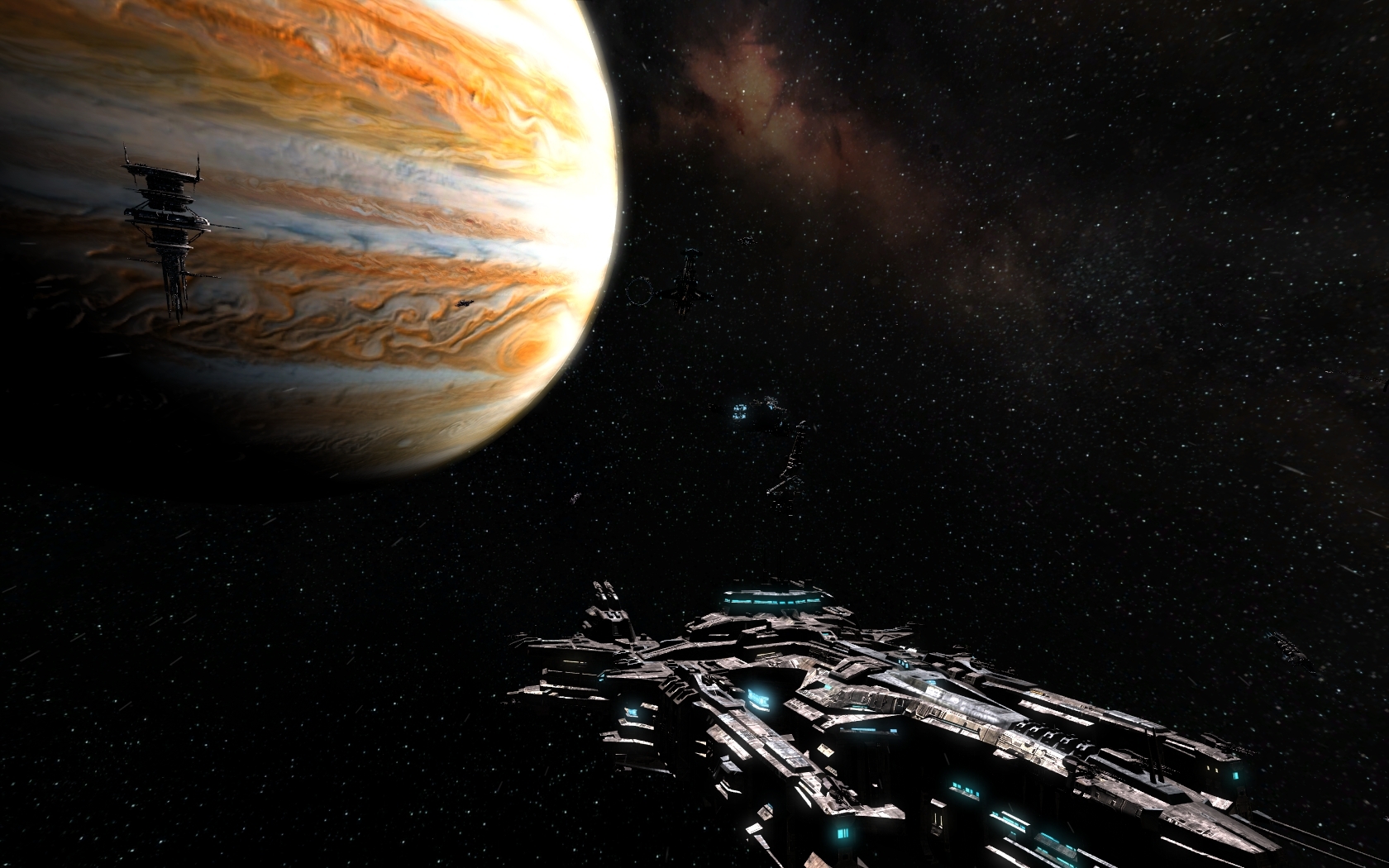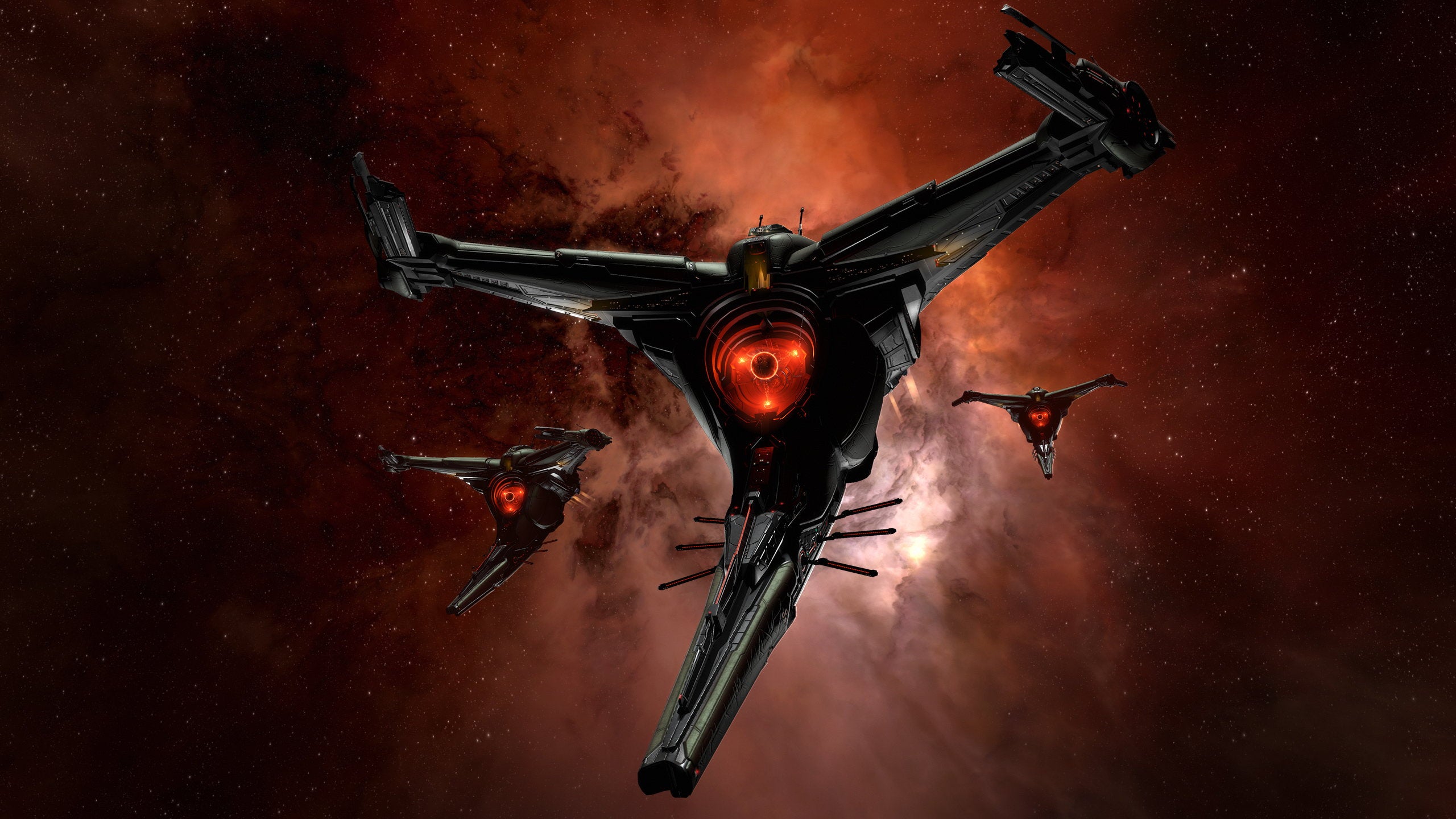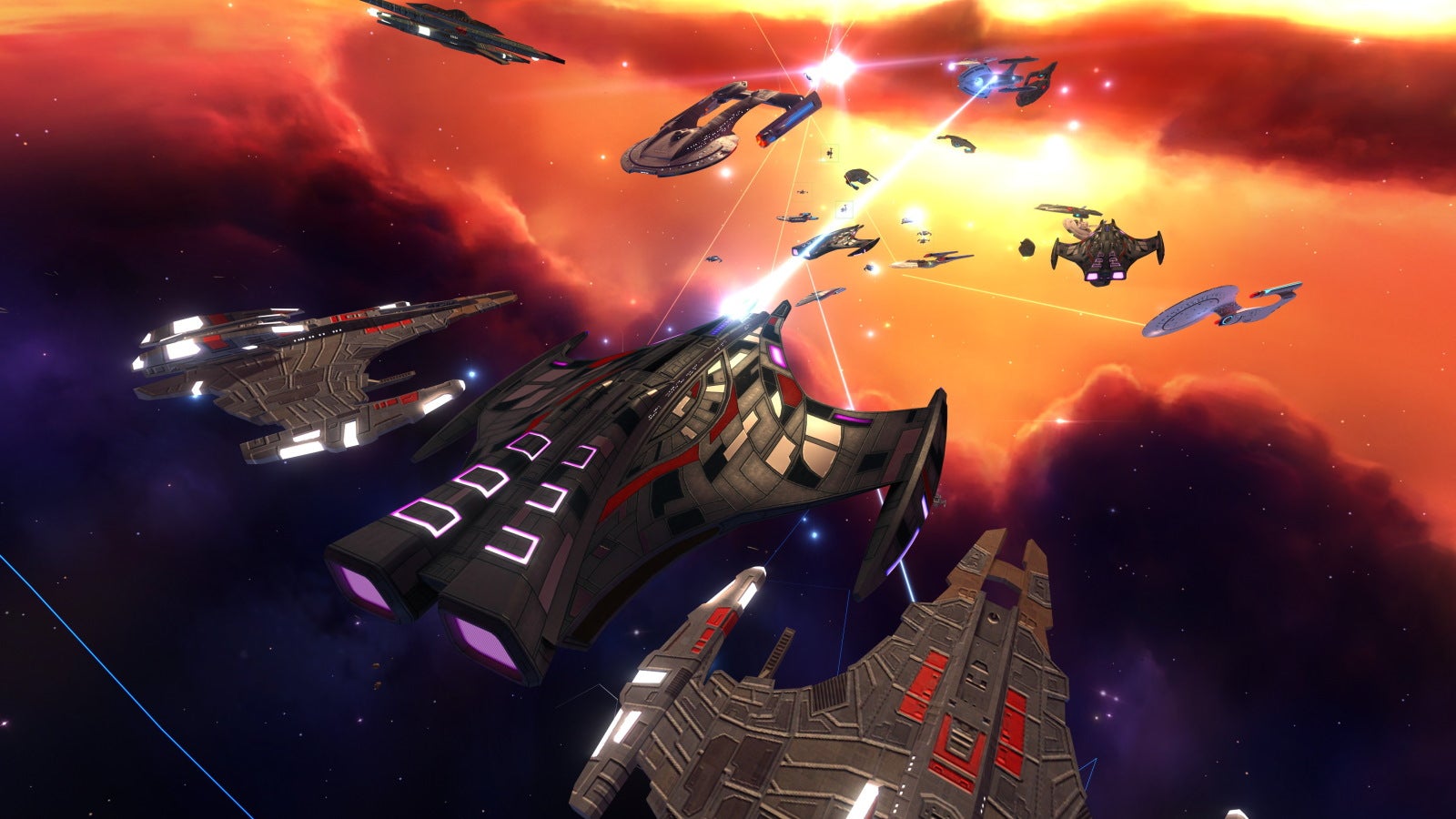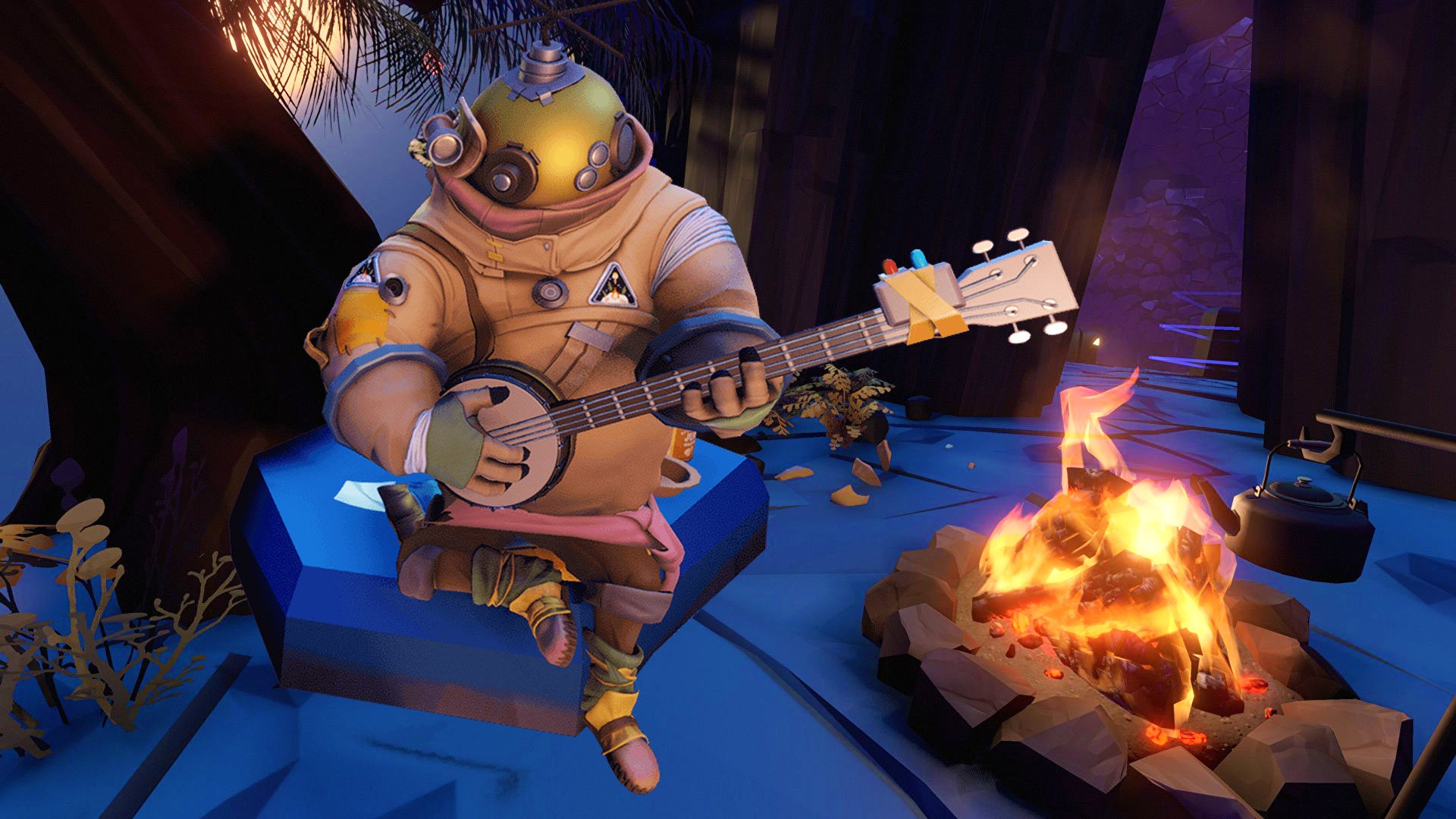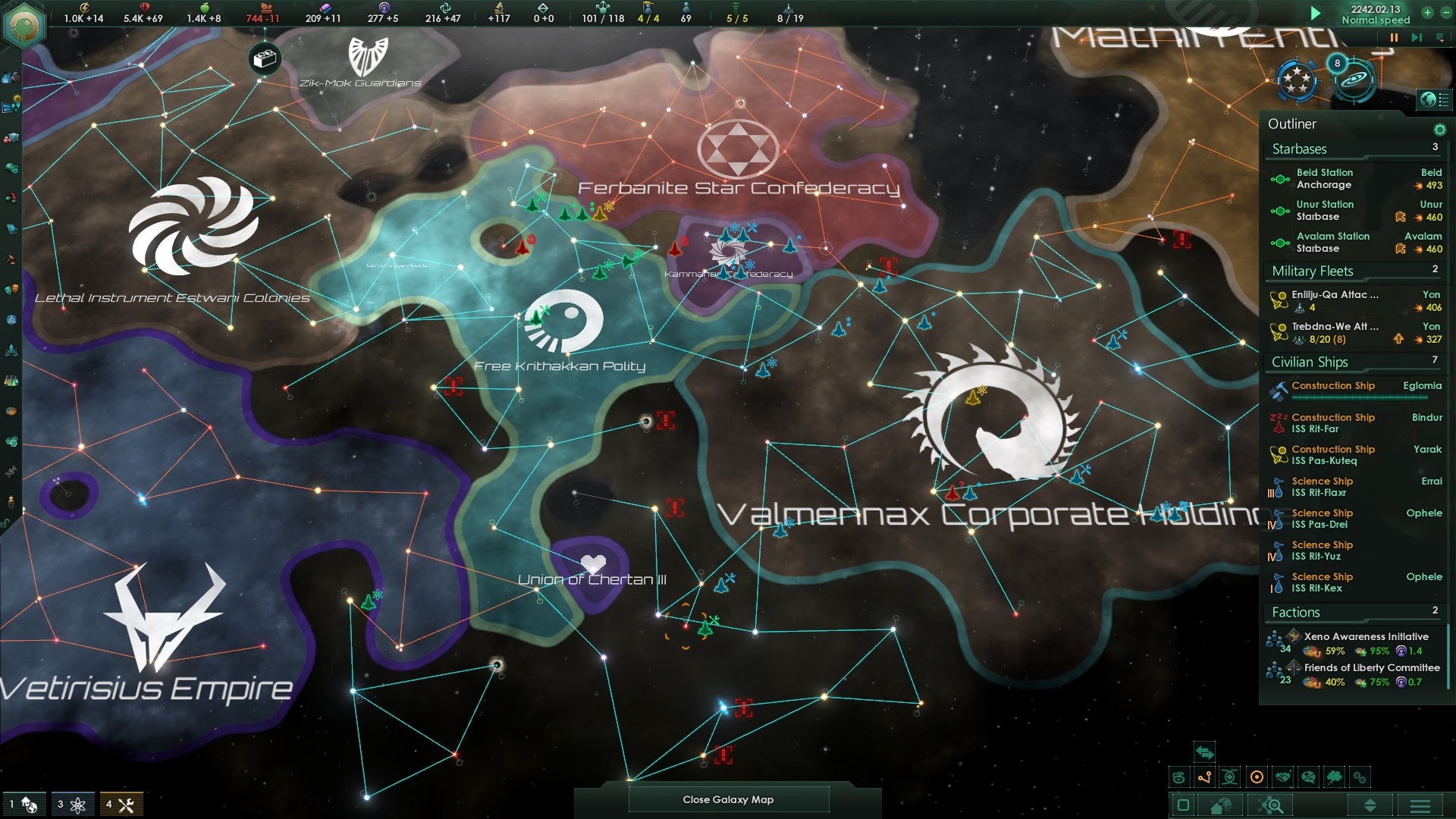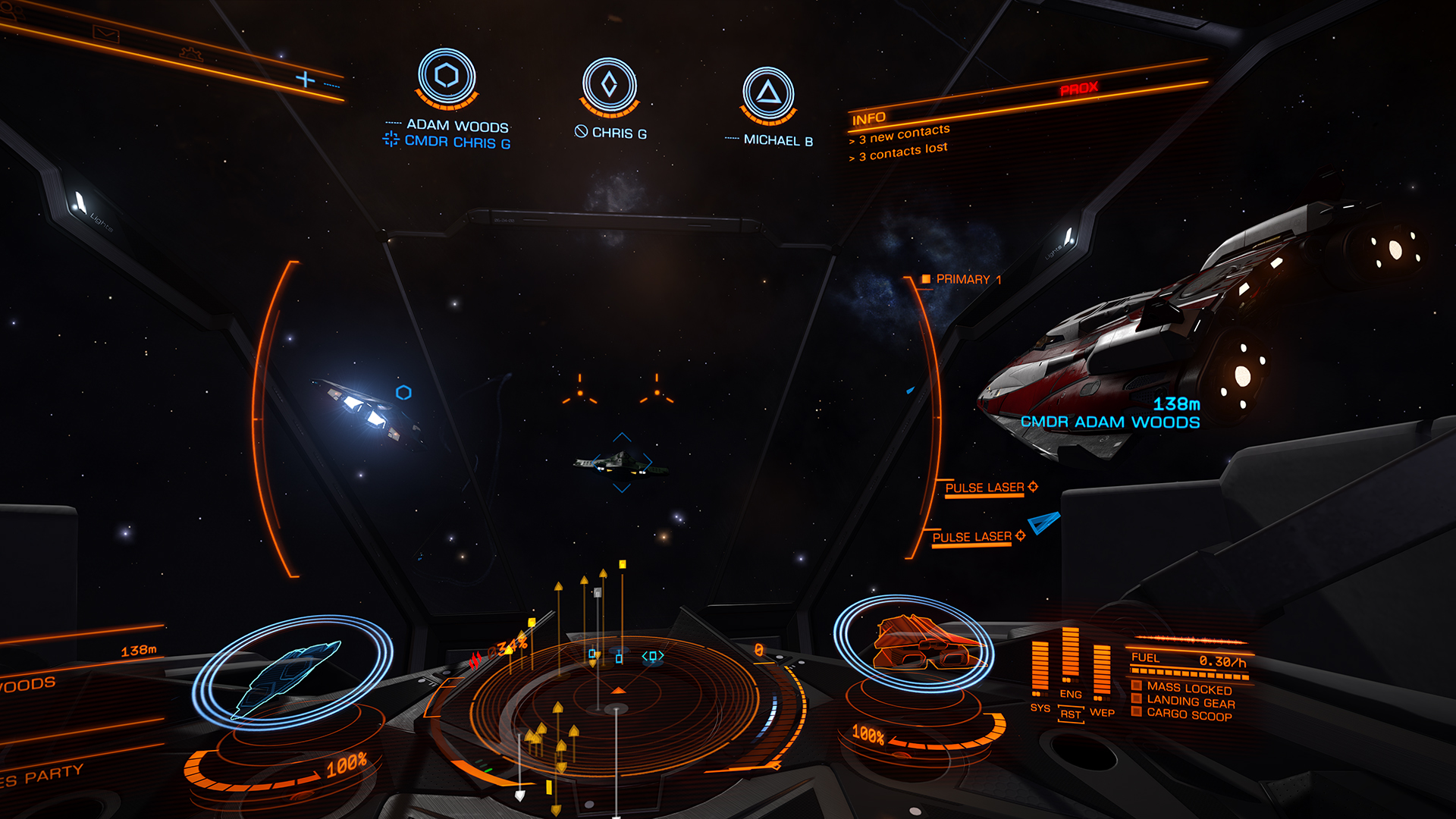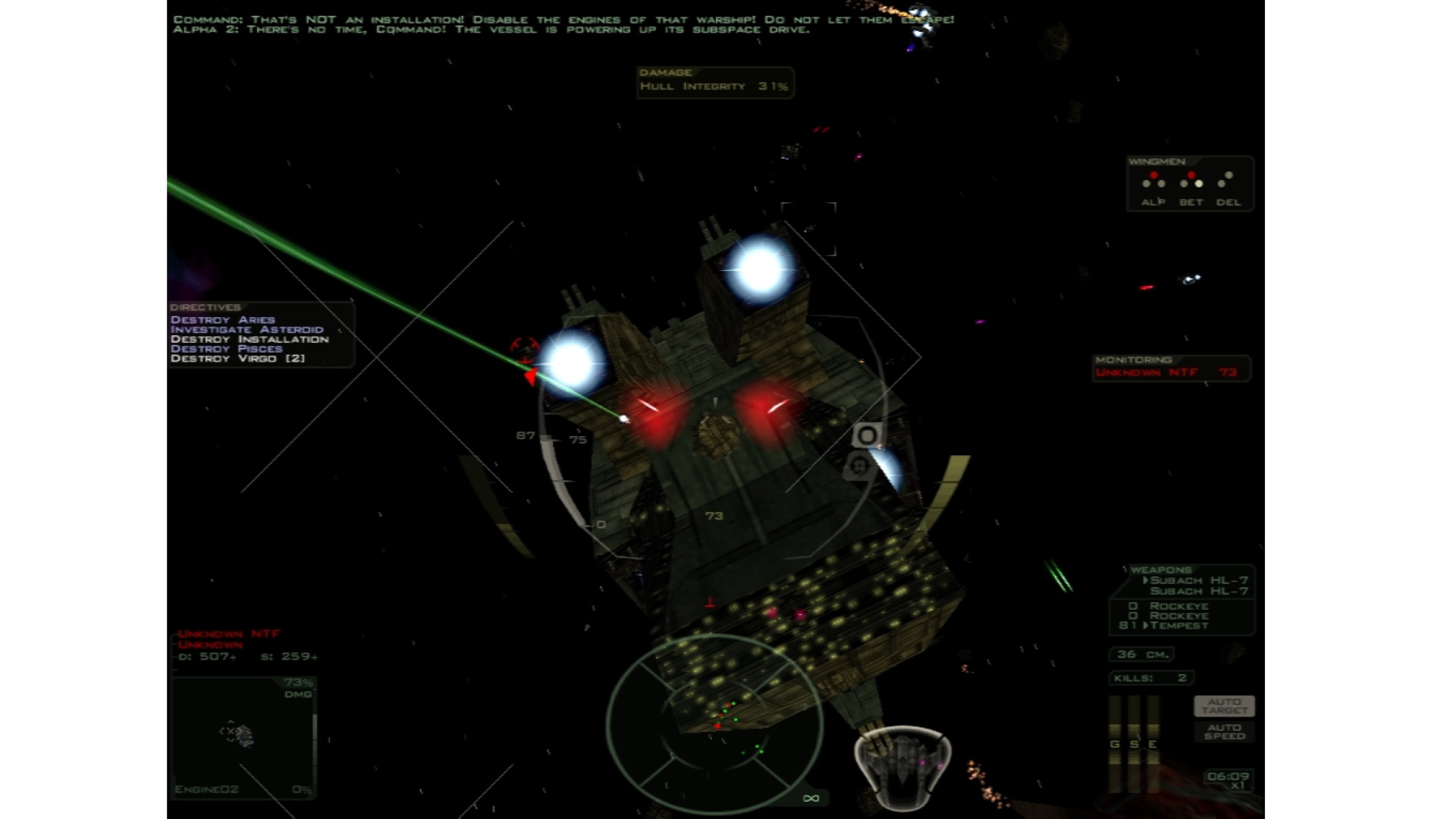We’ve kept our definition of “space game” fairly traditional here. While you’ll find plenty of hybrid games in our best space games list, from RPGs and strategy games to roguelikes and more, most of them involve hurtling across the universe in a ship of some description, rather than, say, settling on the surface of a new planet and starting a new life for yourself. That means no Surviving Mars or Astroneer, for example. We’ve also discounted games like Destiny 2 and Alien: Isolation, mostly because while these games are set in space to some degree, you never actually get to go to space.
Best space games
There are loads of brilliant space games to be found on PC, but we’ve selected 20 of the best below. There are still plenty of classics here, but for we’ve focused on games we’d recommend you play today for this list, rather than a ‘greatest space games of all time’ affair. Disagree? Tell us about your favourite space game in the comments below, and maybe you’ll convince others to give it a try.
Mass Effect: Legendary Edition Slipways Descent Galactic Civilizations II: Endless Universe Star Wars: TIE Fighter Rebel Galaxy Outlaw Star Traders: Frontiers Battlefleet Gothic: Armada 2 Sins Of A Solar Empire X3: Albion Prelude EVE Online Homeworld Remastered Distant Worlds Universe Outer Wilds Stellaris FTL: Faster Than Light No Man’s Sky Elite Dangerous Kerbal Space Program Freespace 2
20. Mass Effect Legendary Edition
The Mass Effects are Captain Kirk simulators. You’re not Sulu, blowing Klingons out of space, or Chekov, piloting a ship; you’re the boss. And being the boss largely means telling people what to do - and snogging. Commander Shepard’s second mission remains their best - it’s a planet-hopping Argonautica and suicide mission with some of BioWare’s best-realised characters - but now the entire trilogy has been remastered as part of the Legendary Edition, there’s really no reason not to play the whole lot from start to finish. After all, no Mass Effect is an island. The middle game might be the best, but the first lays all the groundwork. And don’t listen to the naysayers, the final game drops the ball a bit during the closing act, but otherwise it’s a cracking end to the trilogy.
19. Slipways
At first glance, Slipways looks like another spacefaring 4X-athon, but it’s actually a fiendishly moreish strategy-infused puzzle game. The goal is to create a prosperous, star-spanning galactic civilisation by linking up networks of planets so that each one has access to the resources it needs to first survive, then thrive. However, the titular slipways can’t cross each other, so you need to consider all future connections with each expansion. But there’s a lot more to Slipways than just managing resource exchange routes. There are different planet types to consider, which come with their own imports and exports to sort out, and you’ll also need to send out probes to discover what lies beyond the edge of your current borders, which costs time and may end up being detrimental to your empire’s happiness and sustainability in the long run. It’s a wonderful blend of efficiency and risk management, but the best thing about Slipways is that each run lasts just 45 minutes, delivering all that lovely puzzle-y, 4X goodness in manageable, bite-sized chunks. If you’ve ever balked at the commitment required to play a 4X, Slipways is a perfect starting point.
18. Descent
Having been lumped in with run-and-gun first-person shooters since the time of its release (CGW magazine called it “Doom on Benzedrine in a vacuum”), Descent’s numerous innovations have often been serially overlooked. True, it didn’t have many rock star developers working on it, there were no demons from hell rampaging through it’s claustrophobic corridors and there was not one smear of blood to enrage or delight its audience. What it did have was speed, maze-like 3D levels and a range of movement in all directions that was at beautiful odds with the limited space in which to manoeuvre. Disorientation was a constant companion - for some players so, too, was motion sickness - but in rescuing trapped colonists otherwise doomed to die and escaping each quaking level before it was engulfed in a nuclear fireball the game paid out in full. After more than 20 years, does Descent remain an essential game in the same way as Doom? Given that it would morph into Freespace and remain to some degree in Red Faction’s DNA, yes, yes it is. More importantly, it’s still enjoyable, more so in many ways than the game that inspired it.
17. Galactic Civilizations II: Endless Universe
Galactic Civilizations II isn’t the most inventive space strategy game on the planet (pardon the pun), but Stardock’s intergalactic conquer-’em-up isn’t so much about unexpected story twists as it is about just creating a really good, solid 4X game. You guide a space-faring race across the stars and stake your claim on the rest of the galaxy, job done. What sets Galactic Civilizations II apart, though, is its crafty AI. Not only does it offer a meaty challenge to your space-faring exploits, but its attempts at deploying tailored, counter-strategies makes it feel all the more personal each time you play. It is getting on a bit now, but the Endless Universe / Ultimate Edition release shows Galactic Civilizations at its best, bundling in both expansions (Dark Avatar and Twilight of the Arnor) and giving you the option to destroy entire solar systems.
16. Star Wars: TIE Fighter
Contrary to popular belief, the X-Wing series wasn’t a direct assault on Wing Commander. It was an attempt to transpose the systems and success of Totally Games’ first series onto what would be its second. Indeed, you don’t need to play much of either to see that there’s more of Wing Commander in Battlehawks 1942 and Their Finest Hour than there is of X-Wing or TIE Fighter in Wing Commander. Just as Star Wars’ space battles are inspired by WWII combat footage, the X-Wing series are informed almost entirely by Totally’s WWII fight games. That they all featured a mission builder, combat recorder and historical missions only serves to underline that fact. In any case, had X-Wing been intended as Star Wars’ answer to WingCo, X-Wing 2 would surely have followed it. Instead Totally and Lucasarts opted to flip the story to the Dark Side, in so doing allowing players the opportunity to fight for the Empire for the first time while avoiding the mistake of painting everyone in it as wholly and irredeemably evil. Even though we knew we were on the wrong side, the game had us believing our hearts were in the right place, even if our guns were pointing at the good guys. Plus, if you want to see what TIE Fighter might look like with modern day graphics, be sure to check out the recently released TIE Fighter: Total Conversion mod for X-Wing Alliance, too, which pretty much recreates TIE Fighter from the ground-up, and adds in VR support.
15. Rebel Galaxy Outlaw
Rebel Galaxy Outlaw is that rare space sim that manages to capture the thrill and wonder of exploring a star system without wildly over-promising on what to expect. It may only be set in a single region of space with 40-odd star systems to peruse, but within those limited confines is a game packed with dogfights, bounty hunts, underhand deals and fraught delivery runs. Action is the name of the game here, and Double Damage Games makes you get you’re able to get your hands dirty at every possible opportunity. Thanks to Outlaw’s clever targeting system and auto-pursuit system, dogfights are brilliant fun. You can turn off auto-pursuit if you prefer to go old-school with your space fights, but leaving it on makes every skirmish feel like a nail-biting battle of wits rather than chance pot-shots into the void. Rebel Galaxy Outlaw also manages that rare feat of giving us a character we actually care about, and a story that gives them a place and purpose in this vast region of the unknown. A lot of it covers familiar ground, but it makes a refreshing change from your No Man’s Sky and Elite Dangerous types. Lovingly crafted and always stunningly pretty to look at, Rebel Galaxy Outlaw always has us coming back for more.
14. Star Traders: Frontiers
Space captains are better served than ever for 2D Elite-ish games, but Star Traders: Frontiers is by far the best out there. Create your captain, pick a ship, and fill it with a crew of pilots, navigators, swordsmen, and whatever niche experts suit your needs. Getting on your feet can be hard, but once you’ve got a little money and the favour of some political figures, the galaxy is yours to adventure in. Your ship and crew define you more than in any space RPG, as you can refit and reorganise them as you see fit. Almost everything you do in Frontiers can affect the economy, status, and political relations of local characters, planets, and factions, whether you want to dig into its multi-threaded story jobs or not. And you’ll inevitably end up doing more than you planned for when opportunity knocks. Your unarmed spy ship might make a great smuggler. Your ship-disabling pirates might create perfect opportunities to start taking on bounty hunter jobs. Or you might just stumble across some exotic goods, and find yourself waylaid in a chain of unexpected events on your way to find a black market to sell them at. Plus, you can hire a sniper who wears pink thigh high boots in space. What’s not to love?
13. Battlefleet Gothic: Armada 2
If you’re happy to trade off realism for sheer spectacle when it comes to space battles, then Battlefleet Gothic: Armada 2 (the definitive Warhammer 40,000 navy ’em up) is going to be your happy place. Despite all the cinematic 3D camera work, its battles play out on a resolutely 2D playing field. It’s essentially a sea battle game with bombastic, giga-scale space stylings, and it pushes a lot of the same buttons as Total War games in terms of play feel - you build up fleets on a campaign layer, then position them on a tactical map and shove them into the enemy to start knocking lumps out of each other. Conflict in BFGA2 feels huge: hundreds of individual turrets batter away at each other, while fighters zip around like clouds of dust, and massive ships explode gloriously with a groaning sound like a whale reading its credit card bill. You can play as 12 of the major 40k factions in BFGA2’s skirmish mode, while four get their own campaigns. The strategic game sometimes feels a little light, but not so much that it feels stripped down, and there’s an impressive level of storytelling and lore involved, when it didn’t necessarily have to be. The big draw, however you choose to play, and whatever you choose to play as, is that you’re guaranteed one hell of a light show.
12. Sins Of A Solar Empire
Ironclad Games’ RTS pinches the scale of a 4X game and pits massive armadas against each other in orbital laser light shows. All the diplomatic, trade and research systems borrowed from 4Xs prop up the constant war, funding and upgrading increasingly diverse fleets. At first you’ll just be throwing light attack ships at planets you want to gobble up, but eventually you’ll be surrounding worlds and enemy fleets with capital ships the size of small moons and a whole host of support vessels, carriers, tiny fighters and bombers. What else should I be playing if I like this: There’s a fantastic Star Wars mod for Rebellion, but if you want the official thing, give Star Wars: Empire at War a try. Sins’ smartest trick is the use of restrictive lanes to connect worlds. It forces fleets to travel down predetermined paths, appearing in specific places. Even in space, then, there’s terrain, with the lanes’ entrances and exits acting as choke points around which weapons platforms can be constructed and fleets positioned. The Rebellion standalone adds the additional wrinkle of new playable rebel factions and their accompanying victory conditions, but also powerful Titan-class ships and overhauled vanilla factions. Oh, and it’s quite a bit prettier!
11. X3: Albion Prelude
Although it started out as a rather humourless and unhurried take on Elite, the X series has carved out an impressive niche for itself over the course of 15 years or so, becoming the go-to game for space captains who’d rather explore a capitalist frontier than venture beyond anything physical. Egosoft would no doubt argue that there’s been more to its games than first-person Industry Giant in space, pointing to the series’ motto and the prominence of fighting ahead of thinking. The truth is that that it took a few attempts for the German developer to properly nail combat. The X3 games seemed to nail it though; each release offering a more evolved OS-styled control setup that managed to avoid falling into the FPS mouse trap while complimenting the complexities of the trading simulation underpinning the game. Some might protest that the Albion Prelude expansion went a step too far, with too much slow-burning intricacy and not enough explanation, but by setting the X universe at war with itself ahead of the slate-cleaning Rebirth, it offered players the best opportunity in the long-running series to make good profit at the expense of others.
10. EVE Online
For all its infamous high stakes drama and ruthless corporate betrayals, there’s room for a lot more in EVE than most people think. The enormously complex player economy is ultimately about loads of random players all doing their own thing, after all. More so than perhaps any other game, EVE is about interacting with others, but that too can be done as you see fit. The jostling alliances of hundreds-strong players make the headlines, but exist alongside countless small groups of friends, pairs, even the occasional solo player making their space life by trade, manufacture, murder, or just quietly shooting endless disposable NPC ships for an hour or two after work to unwind. It’s a demanding game for sure, but getting to know even a small corner of it feels satisfying. Seeing familiar names and knowing what they’re up to, who they’re friends with, and what things you can achieve together is one of the promises that few MMOs deliver on. It takes some patience and a lot of initiative, and the ability to sigh and shrug some things off. But if you’re not enjoying what you’re doing in EVE, you can just do something else. Get talking to someone, for heaven’s sake. There are opportunities everywhere if you’re willing to make the effort.
9. Homeworld Remastered
The original Homeworld is one of the all-time great space RTS games, but trying to get it running on a modern PC is a bit of a nightmare - if only because it hasn’t been available to buy for the better part of a decade. Thankfully, Gearbox’s 2015 remaster brought it bang up to date. Bundling remastered editions of both Homeworld and Homeworld 2 and a special Steam multiplayer mode, this is the definitive way to play one of the best space games of all time. A lot of Homeworld’s accomplishments may seem like old-hat now. Moving multiple units in 3D space? Yawn. A choice between total annihilation and desperate survival? Been there, done that. And yet, the thrill of Homeworld’s epic space battles remains just as strong as it did back in the olden days of 1999. Add in modern dynamic lighting, hi-res textures and a remastered score, and it really is quite the homecoming.
8. Distant Worlds Universe
Distant Worlds Universe collects Code Force and Matrix Games’ complex space 4X game and its DLC in one package, and it was our strategy game of the year back in 2014. The accolade is still well deserved. It’s a sprawling behemoth of a game set in a universe that gets along with or without you. Trade companies do business all across the universe, empires rise and fall, sectors transform from tourist traps into warzones. Rather than presenting empire building as a series of paths, it’s a pure sandbox absent all but player-defined goals. If that sounds daunting, it is! But that that’s OK because Distant Worlds also boasts an unparalleled automation system that breaks the game up into manageable chunks. If war isn’t your cup of Earl Grey, you can leave all martial matters up to the extremely competent AI. The same goes for every system. If you really want to ease into things, or if you just fancy exploring space, you can give up control of everything apart from a single ship. Effectively you take a break from being Emperor to become a simple spaceship captain. From that perspective you can just watch the universe evolve around you. When that gets old, you can start switching off the automation of other systems one by one until you find your limit.
7. Outer Wilds
The solar system of Outer Wilds may only take a few minutes to cross in your rickety old space ship, but the mysteries of its six planets and accompanying moons, comets and satellites will keep you guessing for hours and hours. Our game of the year in 2019, Outer Wilds is a clever space detective game with a Groundhog Day twist. The sun goes supernova every 22 minutes, but thanks to a strange encounter with an ancient alien artefact, your wide-eyed explorer manages to escape being turned into space dust by getting stuck in an infinite time loop. The only way to break it is to solve the mystery of the space-faring Nomai, whose architecture, technology and discoveries shape each and every planet you’ll eventually touch down on. The planets themselves are marvels of design and engineering. From Brittle Hollow, which has a black hole tearing it apart from the inside, to The Hourglass Twins, which are linked by an epic column of sand that gradually drowns one and reveals the secrets of the other with every passing second, the world that Mobius Digital have created here really captures your imagination. It’s exactly the kind of mad science fiction you’ve always dreamed about in games, and each one feels like a distinct ecosystem with its own rules and systems. You’re free to explore them at your own pace, too. Driven by hints and secrets you gather by translating ancient Nomai scrolls and texts they’ve left behind (but never giant ‘go here next’ icons), Outer Wilds’ greatest achievement is simply letting you follow whatever trail of Nomai-shaped breadcrumbs you please as you work to solve this galaxy-wide mystery. Brilliantly written and beautifully crafted, Outer Wilds is a truly stellar stuff.
6. Stellaris
After years of simulating the politics, economics and wars of history, Paradox decided to head off into the stars with their grand strategy/4X hybrid, Stellaris. Crusader Kings II and Europa Universalis IV had been pumping out weird stories and slices of historical drama for a few years, and more than anything else that’s what Stellaris brought to 4X’s sector of space. You can spend hours creating your brand new alien species, right down to their government type and how good they are at making babies, but new technology and special events can transform them into something completely different. Since launch, Stellaris has gone from strength to strength, with Paradox adding a steady stream of new expansions, species and story packs. Its latest expansion, Nemesis, came out in April 2021, too, making it a great time to jump in if you haven’t already.
5. FTL: Faster Than Light
Subset Games’ roguelike-like darling deconstructs spaceship sims and presents managing a vessel as a series of disasters and crises. Each of FTL’s procedural adventure casts you adrift in space with a single goal: outrun the Federation and bring their secret plans to your Rebel allies. In between you are scouts, pirates, people needing help and horrible space parasites. You can’t turn back, though, because the Federation is always nipping at your heels. In real-time fights against other ships, you’ll see your crew slain, your ship boarded by droids, hulls ripped open, explosives teleported in and allies psionically controlled. But you’ll be able to do all of that to your enemies as well. Along the way, you’ll also find or rescue new crew members, get access to the fanciest of future tech, and hopefully get tough enough to take on the final Federation boss. Even seemingly blessed runs can end in catastrophe, but each failure becomes another brilliant sci-fi story. The journey of the Ham Sandwich, for instance, ended particularly tragically. After a run in with a pirate, the ship looked to be done for, with a fires and breaches in multiple rooms and just about every system offline. The engine fire was the worst of the problems and if it wasn’t taken care of, the whole ship would be doomed. Our engineer tirelessly fought the fire, even as the oxygen was sucked out of the room through a tear in the hull. With his final breath he managed to put out the fire, the doors could be unsealed, and the rest of the crew repaired the hole. Unfortunately, an encounter with a solar flare one jump later finished the Ham Sandwich off.
4. No Man’s Sky
It’s been a bumpy old ride for No Man’s Sky since it launched in 2016, but after a steady stream of free updates, patches and a lot of jiggery-pokery behind the scenes, Hello Games’ epic, procedurally-generated space exploration game has finally become everything we hoped and dreamed it would be. No Man’s Sky has gone from strength to strength in recent years, adding a proper multiplayer experience, full VR support, aquatic biomes, and even more beasts, flora, fauna and customisation options. Heck, you can even fly around in sentient, living, breathing space ships now, and if that doesn’t shout ‘best space game’ material, we don’t know what does. It is, without doubt, one of the greatest comeback stories of the last decade. At its heart, No Man’s Sky is still a crafting-based survival ’em up that sees you journeying toward the centre of the universe and gradually upgrading your ship so you can jump farther and farther distances, but it’s also about flying to and from stunning looking planets and staring slack-jawed at all the mad creatures you’ll find therein. You no longer have to make the journey alone, either, as up to 32 players can now join a single server, and you’ll see other players appear onscreen when they’re nearby. Its VR support is also first rate, making it one of the best VR games you can play on PC right now, and it’s also one of the best games to play in ultrawide mode, too.
3. Elite Dangerous
What makes Elite Dangerous so compelling isn’t so much about the game as the experience. It’s the tinkering with and the taking out of a performance car for a Sunday drive, not to rack up more miles, nor to break any speed limits, but to just feel the growl of the engine and the wind comb through what’s left of your hair. To remember those carefree days arched over a BBC Micro or blinking angrily into a Lenslok and to forget for a short while that you have to make 357 people redundant in the morning. Elite is a hermetically-sealed escape capsule and it’s the best there is. Hell, you could fire the game up and just sit there on a launch pad and the sounds are enough to carry you away, so strong is your ship’s presence and so absorbing are the station surroundings. Taking off, tearing through the station entrance a little too fast and just missing a Python, angling for the next jump, scooping fuel from a blazing sun, spinning the camera around your ship to catch its best profile, starting a fight just for the hell of it, seeing smoke rise from the command console, hearing the screen crack and precious oxygen escaping into space and landing back at base with seconds to spare - these are the moments that make Elite essential. Trading, missions, mining - not so much. But it’s all right, we’re not going anywhere.
2. Kerbal Space Program
It could be argued that Kerbal Space Program doesn’t belong on this list, because it’s a game about trying but (mostly) failing to get into space. Sometimes it’s a game about smashing into the ground. Botched attempts and hopeless failures litter the path to success, but it’s those disastrous experiments that often prove to be the most fun. That might not be the Kerbal Space Program everybody recognises, though. We’re sure it feels great to successfully get the Kerbals on and off the Mun without breaking a sweat, but we’re just happy to see them drifting around in space. We don’t even see our many misadventures as failures anymore because that implies that we haven’t done what we set out to do, which is to draw a blank on everything we know about physics and just muck around with some cool rockets.
1. Freespace 2
Was it Freespace 2 that almost killed the space combat genre? Some like to think it was the game’s commercial failure that did the damage; that there was no interest in space combat games any more and that if anyone persisted in making one, their sales would suffer the same fate. If it ever was a wreck, we now know that Freespace 2 wasn’t left empty for very long, and that the message in the static was soon changed to offer a place of refuge, a rallying point for gamers uninterested in a New World Order of terrorist take-downs. It’s not simply that Freespace 2 is a highly accomplished sequel to what was arguably the finest game in its genre, but that it has become the source of so much creativity over the years. For space genre fans, Diaspora, The Babylon Project, Blue Planet and Wing Commander Saga have been some of the brightest releases in what has, until the last couple of years, been a veritable dark age. The thing is, standard issue Freespace 2 remains largely unchallenged. Considering it was barely a year in development and many of Volition’s ideas for ground attacks and super weapons went unrealised, it offers a number of improvements on the original game. Prior to Freespace 2, capital ships were largely treated as static backgrounds, but now they were part of the foreground, one that fizzed and crackled with explosive energy like never before. Of course Freespace wasn’t perfect. But what the Freespace games did better than anything else was put the player in the midst of a series of epic battles, fighting against the odds versus a relentless and unknowable foe. The spectacular weapons, the frenetic and desperate movement that remains a perfect marriage of UI and controller and graphics that were so in advance of everything all those years ago that, even un-modded today, the game can maintain the fantasy. Even in this new space age, one of procedurally-generated universes and forceless feedback joysticks, Freespace 2 stands as a titan of the genre. The Galactica among Battlestars. The game that has lead the genre home.
